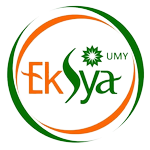The Role of Sharia Financial Innovation and Literacy in Improving the Performance of MSME Actors
DOI:
https://doi.org/10.18196/jiebr.v3i2.193Keywords:
Islamic Financial Literacy, MSME Performance, Islamic Economy, Innovation, Operational EfficiencyAbstract
This study aims to analyze the role of innovation and Islamic financial literacy in improving the performance of MSME actors in the context of Islamic economics. This study also aims to evaluate the impact of innovation and Islamic financial literacy on MSME growth and contribute to the sustainable development of MSMEs. This qualitative research applied a literature approach and document analysis to collect relevant data and information. A literature review was also conducted to identify indicators of the success of Islamic financial innovation and literacy in MSMEs and appropriate evaluation methods. Other research data included previous research results and related case studies. The results of this study revealed that MSMEs that implement Islamic financial innovation and literacy tend to experience improved performance. Product and process innovation, selection of Islamic financial instruments, and financial management by Sharia principles contributed positively to increasing MSME income, productivity, and operational efficiency. This research contributes to understanding the critical role of innovation and Islamic financial literacy in improving the performance of MSME actors. The findings of this study can serve as a reference for relevant stakeholders, including MSME actors, government, and Islamic financial institutions, in developing supporting policies and programs that strengthen innovation and Islamic financial literacy in MSMEs.
References
Abdullah, W. A. A. W., Razak, K. A., Hamzah, M. I., & Zhaffar, N. M. (2021). Innovation Concept in Islam based on Innovative Asatizah. Journal of Quranic Sciences and Research. https://api.semanticscholar.org/CorpusID:245374002
Ahmad, G. N., Widyastuti, U., Susanti, S., & Mukhibad, H. (2020). Determinants of the Islamic financial literacy. Accounting. https://api.semanticscholar.org/CorpusID:226600613
Aldo, R., Mutia, A., & Nazori, M. (2022). Implementation of Islamic Business Ethics In Small And Medium Micro Enterprises (Msmes) In Jambi City. Journal of Management and Business Innovations. https://api.semanticscholar.org/CorpusID:256381540
Alfarisi, M. F. (2020). The Impact of Islamic Economics and Finance Courses on Islamic Financial Literacy. https://api.semanticscholar.org/CorpusID:214050359
Alika, V. A., Santoso, S. B., Nurmaliki, S., & Anisa, N. A. (2021). Marketing Strategy Sharia Financial Institutions to Promote Sharia Fintech and Micro and Small Enterprises (MSES). Proceedings of the 1st MICOSS Mercu Buana International Conference on Social Sciences, MICOSS 2020, September 28-29, 2020, Jakarta, Indonesia. https://api.semanticscholar.org/CorpusID:236597048
Alziyadat, N., & Ahmed, H. (2018). Ethical decision-making in Islamic financial institutions in light of Maqasid Al-Sharia : A conceptual framework. Thunderbird International Business Review. https://api.semanticscholar.org/CorpusID:158228034
Amalia, E., & Rahmatullah, I. (2018). Strategic Alliances between Sharia Microfinance Institutions and Financial Technology in Strengthening Small Micro Enterprises for Socio Economic Justice. https://api.semanticscholar.org/CorpusID:226919314
Anwar, S. M. (2020). Islamic bank contribution to Indonesian economic growth. International Journal of Islamic and Middle Eastern Finance and Management, 13, 519–532. https://api.semanticscholar.org/CorpusID:222079081
Awaliyah, R., & Asri, K. H. (2023). Building Innovative and Prosperous MSMEs in the Perspective of the Islamic Economy. ALIF. https://api.semanticscholar.org/CorpusID:260913864
Ayandibu, A. O., Vezi-Magigaba, M. F., & Kaseeram, I. (2021). Innovation as an Improvement Tool for SMMEs. https://api.semanticscholar.org/CorpusID:225028933
Bank, I. D. (2023). Innovations in Islamic Finance, Wright, C.
Barus, E. E. (2021). Collaboration In Developing Islamic Micro Finance Institutions (IMFs) Based On Financial Technology. At-Tijaroh: Jurnal Ilmu Manajemen Dan Bisnis Islam. https://api.semanticscholar.org/CorpusID:246762313
de Carvalho, G. D. G., Resende, L. M., Pontes, J., de Carvalho, H. G., & Betim, L. M. (2021). Innovation and Management in MSMEs: A Literature Review of Highly Cited Papers. SAGE Open, 11. https://api.semanticscholar.org/CorpusID:244602416
Dinc, Y., Çetin, M., Bulut, M., & Jahangir, R. (2021). Islamic financial literacy scale: an amendment in the sphere of contemporary financial literacy. ISRA International Journal of Islamic Finance, 13(2), 251–263. https://doi.org/10.1108/IJIF-07-2020-0156
Disli, M., Aysan, A. F., & Abdelsalam, O. (2023). Favoring the small and the plenty: Islamic banking for MSMEs. Economic Systems, 47(1), 101051. https://doi.org/https://doi.org/10.1016/j.ecosys.2022.101051
Fitriaty, F., Elliyana, D., & Widiastuti, F. (2022). Innovation model for MSMEs recovery business strategy: Lessons from tourism area during the COVID-19 pandemic. Jurnal Perspektif Pembiayaan Dan Pembangunan Daerah. https://api.semanticscholar.org/CorpusID:253950966
Furqani, H. (2019). Fintech and Islamic finance. Fintech In Islamic Finance. https://api.semanticscholar.org/CorpusID:197878470
Hakeem, M. M. (2019). Innovative solutions to tap “Micro, Small and Medium Enterprises†(MSME) market. Islamic Economic Studies, 27(1), 38–52. https://doi.org/10.1108/IES-05-2019-0002
Hasyim, I. S., Hanif, H., & Anggraeni, E. (2022). Analysis of Perceived Usefulness, Perceived Ease of Use, Trust, And Sharia Financial Literature on The Adoption of Sharia Fintech By MSMEs. Al-Kharaj : Jurnal Ekonomi, Keuangan & Bisnis Syariah. https://api.semanticscholar.org/CorpusID:253335652
Hilmi, M. F. (2018). Responsible innovation in the financial sector: an Islamic perspective. Journal of Responsible Innovation, 5, 247–252. https://api.semanticscholar.org/CorpusID:169797826
Kharub, M., & Sharma, R. K. (2020). An integrated structural model of QMPs, QMS and firm’s performance for competitive positioning in MSMEs. Total Quality Management & Business Excellence, 31, 312–341. https://api.semanticscholar.org/CorpusID:158830791
Lee, J., & Hong, I. B. (2019). Consumer’s Electronic Word-of-Mouth Adoption: The Trust Transfer Perspective. International Journal of Electronic Commerce, 23, 595–627. https://api.semanticscholar.org/CorpusID:203620515
Majid, R., & Mawaddah, H. (2022). FinTech and MSMEs: The role of product knowledge. Asian Journal of Islamic Management (AJIM), 4(1), 15–24. https://doi.org/10.20885/AJIM.vol4.iss1.art2
Mannan, B., & Haleem, A. (2019). Modelling Factors of Innovation Management for Its Implementation in MSMEs of Developing Countries: An IRP Approach. https://api.semanticscholar.org/CorpusID:169674123
Menne, F., Surya, B., Yusuf, M., Suriani, S., Ruslan, M., & Iskandar, I. (2022). Optimizing the Financial Performance of SMEs Based on Sharia Economy: Perspective of Economic Business Sustainability and Open Innovation. Journal of Open Innovation: Technology, Market, and Complexity, 8(1), 18. https://doi.org/https://doi.org/10.3390/joitmc8010018
Mohd Haridan, N., Sheikh Hassan, A. F., Mohammed Shah, S., & Mustafa, H. (2023). Financial innovation in Islamic banks: evidence on the interaction between Shariah board and FinTech. Journal of Islamic Accounting and Business Research, 14(6), 911–930. https://doi.org/10.1108/JIABR-11-2022-0305
Mufidah, A., Istifadah, I., & Awaliyah, I. N. (2022). Sharia Financial Literacy In Personal Financial Planning. International Social Sciences and Humanities. https://api.semanticscholar.org/CorpusID:258196808
Mujiatun, S., Trianto, B., Cahyono, E. F., & Rahmayati. (2023). The Impact of Marketing Communication and Islamic Financial Literacy on Islamic Financial Inclusion and MSMEs Performance: Evidence from Halal Tourism in Indonesia. Sustainability (Switzerland), 15(13). https://doi.org/10.3390/su15139868
Octasylva, A. R. P., Yuliati, L. N., Hartoyo, H., & Soehadi, A. W. (2022). Innovativeness as the Key to MSMEs’ Performances. Sustainability. https://api.semanticscholar.org/CorpusID:249077473
Olazo, D. B. (2022). Marketing competency, marketing innovation and sustainable competitive advantage of small and medium enterprises (SMEs): a mixed-method analysis. Asia Pacific Journal of Marketing and Logistics. https://api.semanticscholar.org/CorpusID:249386424
Paramita, M., Brawijaya, A., & Munawar, W. (2019). Micro Small and Medium Enterprises Accessibility to Financing at Islamic Microfinance Institution in Indonesia. The Journal of Social Sciences Research. https://api.semanticscholar.org/CorpusID:211751671
Pinasti, U. S., Astuti, M. Y., Cantika, V. P., Fahmi, R. A., & Tulasmi, T. (2022). Influence of Financial Ability, Financial Knowledge, and Security on The Interest in Using Digital Payments as a Development of Sharia Economy. KnE Social Sciences. https://api.semanticscholar.org/CorpusID:250328922
Poon, J. P. H., Chow, Y. W., Ewers, M. C., & Ramli, R. (2020). The Role of Skills in Islamic Financial Innovation: Evidence from Bahrain and Malaysia. Journal of Open Innovation: Technology, Market, and Complexity. https://api.semanticscholar.org/CorpusID:225634491
Prakash, B., Kumar, I., & Verma, J. K. (2021). Barriers and potential solutions for MSMEs in developing economies: Evidence from India. Problems and Perspectives in Management. https://api.semanticscholar.org/CorpusID:244864155
Pranatasari, D., Rahmanto, D. N. A., & Wicaksana, R. S. (2021). Digital Islamic Financial Literacy and Inclusion on Profitability of Micro, Small and Medium Enterprises. NUsantara Islamic Economic Journal. https://api.semanticscholar.org/CorpusID:253472384
Putri, A. R., Muzayanah, I. F. U., & Kasri, R. A. (2018). The Role of Islamic Microfinance to Support the Growth of Small – Medium Enterprises: Case Study of SMEs in Jakarta, Depok, Bogor and Tangerang. https://api.semanticscholar.org/CorpusID:222628720
Quimba, M., & Rosellon, M. (2019). Impact of Government Incentive on MSME Innovation. Philippine Institute for Development Studies, 27. https://www.pids.gov.ph
Radha, N., & Sekhar, S. C. (2019). Impact of Globalization on MSME: Prospects, Challenges and Policy Implementation on Economic Growth. International Journal of Trend in Scientific Research and Development. https://api.semanticscholar.org/CorpusID:211766905
Rahman, A., & Ervina. (2021). A Model for Enhancing the Competitiveness of MSMEs Through E-Commerce. Proceedings of the 2nd International Conference on Administration Science 2020 (ICAS 2020). https://api.semanticscholar.org/CorpusID:237750558
Rahmansyah, D., Saputri, D. V., Utami, Z. R., & Wang, Y. (2023). The Role of Sharia Financial Innovation and Literacy for MSME Actors in Increasing Profitability. Sharia Oikonomia Law Journal. https://api.semanticscholar.org/CorpusID:260834010
Rashid, R. A., Zainol, Z., YazidIsa, M., Taib, N. M., & Nizam, A. N. H. K. (2019). Exploring the Conceptual Definition of Islamic Financial Literacy from the Quran and Sunnah. https://api.semanticscholar.org/CorpusID:216392712
Ratnawati, K. (2020). The Influence of Financial Inclusion on MSMEs’ Performance Through Financial Intermediation and Access to Capital. Journal of Asian Finance, Economics and Business, 7, 205–218. https://api.semanticscholar.org/CorpusID:228855467
Rizal, M. (2021). ASSISTANCE OF SHARIA BANKING FINANCE PROGRAM IN MSME DEVELOPMENT IN MALANG REGENCY. Journal of Interdisciplinary Socio-Economic and Community Study. https://api.semanticscholar.org/CorpusID:245775929
Rohayati, S., & Qolbi, T. A. (2022). THE INFLUENCE OF ISLAMIC FINANCIAL LITERACY LEVEL ON INTEREST IN CREATING MICRO, SMALL AND MEDIUM ENTERPRISES (MSMEs). Syari’ah Economics. https://api.semanticscholar.org/CorpusID:252239706
Rusdana, N. R., Choirani, S. J., & Friska, A. S. (2022). Digital Marketing Communication Strategy for Micro, Small and Medium Enterprises (MSMEs) in Business Competition. International Journal of Research and Applied Technology. https://api.semanticscholar.org/CorpusID:252135263
Saad, N. M. D., Mohammad, M., & Haneef, M. A. (2020). Empowering Community Through Entrepreneurship Training and Islamic Micro-Financing. https://api.semanticscholar.org/CorpusID:213051235
Santoso, B. (2020). The Role of Micro, Small, and Medium Enterprises Toward Sustainable Development Goals Through Islamic Financial Institutions. 409(SoRes 2019), 585–595. https://doi.org/10.2991/assehr.k.200225.127
Sathana, V., Velnampy, T., & Rajumesh, S. (2021). Role of Innovative Marketing Strategy for Success of Micro, Small, and Medium Enterprises (MSMEs). https://api.semanticscholar.org/CorpusID:236706027
Singh, S., & Aggarwal, Y. (2021). In search of a consensus definition of innovation: a qualitative synthesis of 208 definitions using grounded theory approach. Innovation: The European Journal of Social Science Research, 35, 177–195. https://api.semanticscholar.org/CorpusID:236553760
Sofia, N., Ritonga, M., & Arita, S. (2021). Analysis of MSME Players’ Financial Literacy in Payakumbuh City. https://api.semanticscholar.org/CorpusID:235753300
Srisusilawati, P., Fasa, M. I., Nurhayat, S., Anugrahwanto, R. B., Hidayat, A. W., Sulaimawan, D., Fitri, A., Rahmayuni, S., & Zahra, D. N. (2021). The Nexus Between Dynamic Capability and Islamic Financial Literacy Towards Innovation of Small Medium Enterprises (SMEs) in Indonesia. https://api.semanticscholar.org/CorpusID:233367380
Srisusilawati, P., Malik, Z. A., Silviany, I. Y., & Eprianti, N. (2021). The roles of self efficacy and sharia financial literacy to SMES performance: business model as intermediate variable. In F1000Research (Vol. 10). https://doi.org/10.12688/f1000research.76001.2
Suharyati, S. (2020). Strengthening Innovation And Entrepreneurship In Improving Smes Competitiveness. https://api.semanticscholar.org/CorpusID:216191265
Suseno, I., Yohanna, L., & Sondari, E. (2021). Islamic financial literacy and management for MSMEs. Proceeding of the International Conference on Family Business and Entrepreneurship. https://api.semanticscholar.org/CorpusID:247049649
Suwarsi, A. A., Sharfina, A. G., & Anggraeni, A. (2022). Portrait of MSMEs‘ Islamic Financial Literacy and The Impact on Business Development. Afkaruna: Indonesian Interdisciplinary Journal of Islamic Studies. https://api.semanticscholar.org/CorpusID:251143791
Trianto, B., Barus, E. E., & Sabiu, T. T. (2021). Relationship Between Islamic Financial Literacy, Islamic Financial Inclusion and Business Performance : Evidence from Culinary Cluster of Creative Economy. IKONOMIKA. https://api.semanticscholar.org/CorpusID:236336531
Triwahyono, B., Rahayu, T. S., & Kraugusteeliana, K. (2023). Analysing the Role of Technological Innovation in Improving the Operational Efficiency of MSMEs. Jurnal Minfo Polgan. https://api.semanticscholar.org/CorpusID:261115579
Usman, U., Kusuma, H., & Ardiansyah, M. (2022). Predicting Islamic Finance Adoption Behavior by MSMEs: Institutional Theory Approach. Jurnal Manajemen Bisnis. https://api.semanticscholar.org/CorpusID:251639168
Valenzuela, M. C., MartÃnez-MartÃnez, S. L., & Soto, J. D. (2021). Financial Literacy and Innovation Performance in SMEs. https://api.semanticscholar.org/CorpusID:234232941
Weldeslassie, H. A., Vermaack, C., Gebrekirstos, K., Minwuyelet, L., Tsegay, M., Tekola, N. H., & Gidey, Y. (2019). Contributions of Micro, Small and Medium Enterprises (MSMEs) to Income Generation, Employment and GDP: Case Study Ethiopia. Journal of Sustainable Development. https://api.semanticscholar.org/CorpusID:195519856
Wulandari, R., & Koe, W.-L. (2023). The Effect of Owner’s Characteristics through Innovation on the MSMEs Performance. International Research Journal of Business Studies. https://api.semanticscholar.org/CorpusID:257463702
Downloads
Published
How to Cite
Issue
Section
License
Copyright (c) 2023 Journal of Islamic Economic and Business Research

This work is licensed under a Creative Commons Attribution-NonCommercial 4.0 International License.
Journal of Islamic Economic and Business Research has CC-BY NC or an equivalent license as the optimal license for the publication, distribution, use, and reuse of scholarly work for non-commercial purpose. The non-commercial use of the article will be governed by the Creative Commons Attribution license as currently displayed on Creative Commons Attribution-NonCommercial 4.0 International License
Creative Commons License




